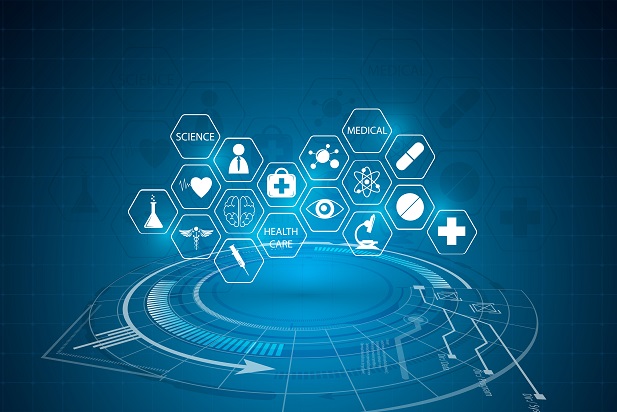 OpenNotes, a research group that advocates for better access, says that today about 40 million patients are a part of a health system that shares clinical notes through their electronic health record software. (Photo: Shutterstock)
OpenNotes, a research group that advocates for better access, says that today about 40 million patients are a part of a health system that shares clinical notes through their electronic health record software. (Photo: Shutterstock)
When Pamela DeSalvo read the clinical note from her doctor's visit, the words on the page hit her hard: “clinically morbidly obese.” She knew she was overweight, but seeing those three words together shocked her. It also inspired her to start losing weight.
“I needed to see it in black and white, what I actually in my heart already knew. It forced me to get honest with myself,” DeSalvo said.
“Reading that note saved my life.” Studies show that, indeed, reading your doctor's notes can improve your health.
DeSalvo lives in Metuchen, N.J., and works in health information technology. In the years after reading her doctor's notes, DeSalvo kept that experience in mind as she helped Atrium Health implement a system that allows doctors to share clinical notes.
Related: Patients want doctors to be up on health care technology, but not too much
Many patients go home with a summary of their office visit. That recap often includes a list of medications or reminders to schedule a follow-up. The full doctor's note has many more details —all the stuff the physician types into the computer during and after your medical appointment. Your medical history. The complaint that brought you to the office. Sometimes, physicians write down exactly what patients say. Mixed in are billing codes and the doctor's thoughts about what might be happening with the patient.
A research project in Boston, called OpenNotes, encourages doctors to share their notes with patients. On the flip side, it invites patients to ask for access to their doctor's notes. The project is housed at Beth Israel Deaconess Medical Center.
In one study, when researchers surveyed patients who'd looked at their doctor's notes, the majority of patients reported they felt more in control of their care and said they were more compliant taking medication. A small share — from 1 percent to 8 percent — said the notes caused confusion, worry or offense.
Liz Salmi, a woman living with brain cancer in Sacramento, Calif., was an experienced patient advocate and blogger when she first got a look at her doctor's notes on her. After Salmi's insurance changed, she requested her medical records. For $45, she received a 4,839-page PDF on a disk along with her brain scans.
And she got curious. “I was, like, what is on these disks?” Salmi said.
There was no big revelation. And she didn't uncover any mistakes.
But it was a nice way to re-hear what her doctors had told her through the years. Salmi said the records are a time capsule of sorts. As Salmi scanned the pages, she said, she discovered “meaningful nuggets” where her doctors quoted her verbatim.
“Just that level of detail made me feel like they were listening,” said Salmi, who is featured in this week's episode of the podcast “An Arm and a Leg,” which is co-produced by Kaiser Health News.
Eventually, Salmi went to work for OpenNotes, and today she's a senior strategist who does outreach and communications for the research group.
The Health Insurance Portability and Accountability Act, or HIPAA, which has been the law since 1996, allows patients to review and get copies of their medical records.
But researcher Dr. Harlan Krumholz said a legal right doesn't guarantee easy access.
Krumholz, a cardiologist and professor at Yale University, published a study in 2018 that examined the records-requesting process at 83 top-ranked hospitals in the U.S.
The results varied widely. Some hospitals didn't meet state deadlines for delivering the records, others charged exorbitant fees for the documents — well above the federal government's recommendation for electronic records.
“What is clear from this is, it is hard for Americans to get access to their own medical records,” Krumholz said.
OpenNotes — the research group that advocates for better access — says that today about 40 million patients are a part of a health system that shares clinical notes through their electronic health record software. But each medical system is different, and it can take time and effort to navigate an online portal to find what you're looking for.
“I've been under the assumption for years that patients could access the notes whenever they wanted to, so I keep them objective and matter-of-fact,” said Dr. Neda Frayha, an internist who practices at Ascension Medical Group in Baltimore.
She encourages her patients to review her notes.
“Being a patient is hard. Appointments take forever, and often clinicians don't spend a lot of time with patients,” said Frayha. “For many patients, it is hard to make sense of what is happening. If access to their note provides them with knowledge and assurance, then that is important to provide.”
Frayha said having her notes on display hasn't changed her behavior or note-taking much. But, she said, “I think it's actually good for us as a profession to be more mindful of the words we use.”
Kaiser Health News is a nonprofit news service covering health issues. It is an editorially independent program of the Kaiser Family Foundation, which is not affiliated with Kaiser Permanente.
Read more:
© 2025 ALM Global, LLC, All Rights Reserved. Request academic re-use from www.copyright.com. All other uses, submit a request to [email protected]. For more information visit Asset & Logo Licensing.







